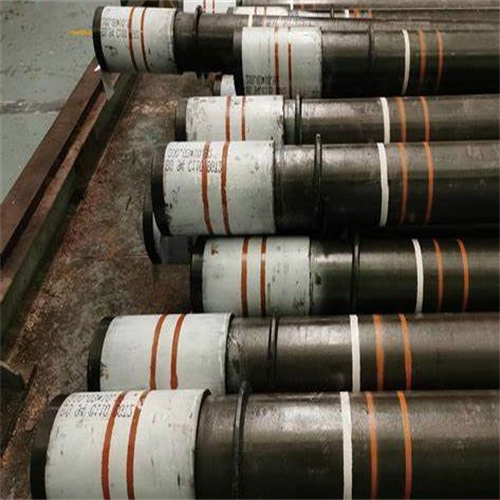Table of Contents
Overview of 7 Inch API 5CT N80 P110 Q125 Casing and Tubing:
Title: 7 Inch API 5CT N80 P110 Q125 Casing and Tubing Casing Pipe Tube Oil Pipe
Overview of 7 Inch API 5CT N80 P110 Q125 Casing and Tubing
Casing and tubing are essential components in the oil and gas industry, playing a crucial role in the drilling and production process. The 7-inch API 5CT N80 P110 Q125 casing and tubing are widely used in various oil and gas fields due to their exceptional strength, durability, and reliability.
The API 5CT standard is a widely recognized specification for casing and tubing used in the oil and gas industry. It sets the technical requirements for the manufacturing and testing of these products to ensure their suitability for downhole operations. The 7-inch casing and tubing conforming to the API 5CT standard are designed to withstand high-pressure conditions and provide effective protection for the wellbore.
The N80, P110, and Q125 grades of casing and tubing are among the most commonly used in the industry. Each grade has its unique properties and applications.
The N80 grade casing and tubing offer excellent resistance to corrosive environments and are suitable for wells with moderate to high Levels of CO2 content. They are known for their high tensile strength, making them ideal for challenging drilling conditions. The N80 grade is widely used in both onshore and offshore drilling operations.
The P110 grade casing and tubing are known for their exceptional toughness and resistance to cracking. They are commonly used in high-stress environments and are suitable for wells with high-pressure and high-temperature conditions. The P110 grade provides reliable performance in deep and challenging drilling operations.
The Q125 grade casing and tubing are specifically designed for extreme conditions, including high-pressure and high-temperature wells. The Q125 grade offers superior mechanical properties, including high yield strength and excellent resistance to corrosion. These properties make it a reliable choice for demanding drilling operations.
Casing and tubing are manufactured using seamless or electric resistance welding (ERW) processes. Seamless pipes are preferred for critical applications due to their uniformity, strength, and reliability. ERW pipes are more cost-effective and are commonly used in less demanding applications.

In addition to the grade, the 7-inch casing and tubing can be further classified based on their connection type. The choice of connection depends on factors such as the well conditions, drilling techniques, and equipment compatibility. Common connection types include API round Thread, buttress thread, and premium thread.
The 7-inch casing and tubing play a crucial role in well completion and production. They provide structural support, prevent formation collapse, and facilitate the efficient extraction of oil and gas from the reservoir. Proper selection and installation of casing and tubing are vital to ensure the integrity and
– **Introduction to API 5CT specification**
The American Petroleum Institute (API) is a leading trade association that represents the oil and Natural Gas industry. The API 5CT specification is a standard that sets guidelines for the manufacturing of casing and tubing used in the oil and gas industry. This specification is designed to ensure the Safety and reliability of these essential components, which are used in the extraction of oil and natural gas from wells.
The API 5CT specification covers seamless and welded casing and tubing, and it includes various grades such as N80, P110, and Q125. These grades are classified based on their yield strength, which is the amount of stress that a material can withstand without permanent deformation.
The N80 grade is a relatively common casing and tubing grade with a relatively high yield strength. It is known for its ability to withstand high pressure and is suitable for use in deep and high-pressure wells. The P110 grade is a higher strength grade compared to N80, making it suitable for deeper and more demanding well conditions. Finally, the Q125 grade is the highest strength grade among the three, making it suitable for the most challenging well environments.
Casing and tubing are critical components in oil and gas wells. Casing is used to line the walls of a drilled well to prevent the formation from collapsing, as well as to isolate the production zones and prevent contamination of the produced fluids. Tubing, on the other hand, is used to transport the oil or natural gas from the wellbore to the surface. Both casing and tubing must be able to withstand high pressure, corrosive environments, and other harsh conditions.
The API 5CT specification ensures that the casing and tubing used in oil and gas wells meet certain quality standards. These standards cover dimensions, mechanical properties, chemical composition, and other important parameters. By adhering to these standards, manufacturers can produce casing and tubing that are reliable and safe for use in oil and gas operations.
In conclusion, the API 5CT specification plays a crucial role in ensuring the quality and performance of casing and tubing used in the oil and gas industry. The N80, P110, and Q125 grades are designed to meet the varying demands of different well conditions, providing operators with options to choose the most suitable materials for their specific applications. Adherence to these standards is essential for the safe and efficient extraction of oil and natural gas from wells.
